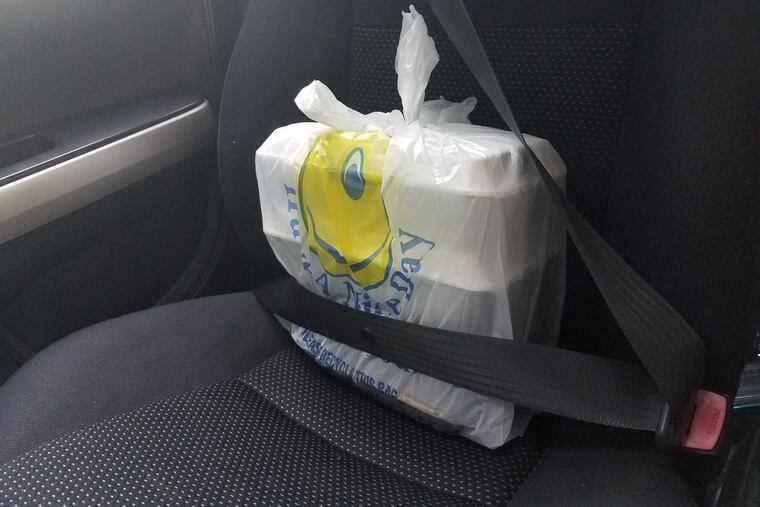Camden County bans most single-use plastics at its facilities including jail, college, tech schools
Camden County officials on Thursday voted on a sweeping ban of single use plastics at all of its 51 facilities, including those that have cafeterias and vending machines. The ban includes plastic bags, straws, stirrers, utensils, foam containers, and bottled water in containers of 1 liter or less.

Camden County on Thursday banned most single-use plastics at all of its 51 facilities, including the cafeterias at the jail and college, and all vending machines in what officials hope will serve as a model for other municipal governments.
The resolution approved unanimously by the board of freeholders Thursday night prohibits plastic bags, straws, beverage stirrers, utensils, foam containers, and bottled water in containers of 1 liter or less from being offered at county buildings and events.
The ban includes the restaurant LaScala’s, which is on Cooper River Park in Pennsauken. The county owns the building.
However, the ban does not included bottled soda. And, it does not bar employees from bringing their plastic bags and other plastic items to work.
The ban begins Jan. 1 and affects vendors who work with the county. It will prohibit items such as plastic bags from being used in the county college bookstore and forks and spoons in the cafeteria, the county jail and the juvenile detention center. The ban would also apply to the county’s library, and two technical high schools in Gloucester Township and Pennsauken.
“The research speaks for itself on the impact of plastics to our oceans, wildlife, and other natural resources,” said Freeholder Jonathan Young, liaison to the Office of Sustainability. “We cannot deny reality any longer and must begin taking whatever steps we have to reduce our reliance on these harmful materials."
The freeholders said they were instituting the ban for multiple reasons: plastic is the most prevalent type of marine debris, it isn’t biodegradable and ends up in landfills or as litter, it’s a problem for wildlife that ingests it or gets tangled in it, and it is derived from petroleum.
Although communities across the nation are passing bans on plastic carry-out bags and other single-use items in retail establishments, bans on government grounds are rare.
Washington, D.C., began a ban on plastic straws in January, following the lead of Seattle, which enacted its own plastic utensil ban last summer. Canada has pledged to eliminate all single-use plastics by 2021.
This summer, Atlantic County enacted a ban on single-use plastics at its parks, but not at all of its facilities. The county freeholders approved a measure that prohibited visitors to its county park from using single-use plastic bags and straws.
“There is significant use of plastics,” said Dan Keashen, a Camden County spokesperson. “We’ve worked pretty closely with our vendors and they’ve agreed to change their contracts.”
Keashen said the county does not have the authority, however, to prohibit employees from bringing in single-use plastics.
He said the Board of Freeholders wants to find “environmentally friendly alternatives to single-use plastics and will be rolling out these replacement products gradually over the next year."
In general, products must be compostable. That means ware used in food service must be made of organic substances that will break down.
“Plastics are a menace and an existential threat to our drinking water, beaches, and wildlife," said Jeff Tittle, director of the New Jersey Sierra Club. “Microplastics have already been found near our drinking water supply, so we can literally be drinking plastic. Polystyrene is also a toxic problem because it contains carcinogenic chemicals and has been found in breast milk. By reducing how much plastic we use, we can also reduce fracking and fossil fuel use.”